
Teresa's Story: Fighting for Anthony's Right to Live in the Community
Fighting to get a Medicaid waiver took everything she had, including calling her lawmaker for help.

Fighting to get a Medicaid waiver took everything she had, including calling her lawmaker for help.
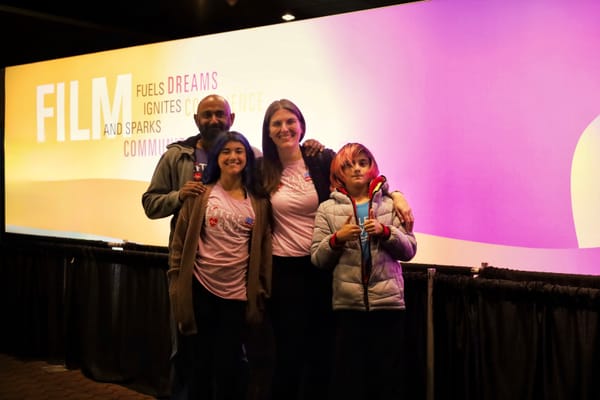
Mother and nurse Alison Chandra shares about her powerful experience at the Sundance Film Festival.
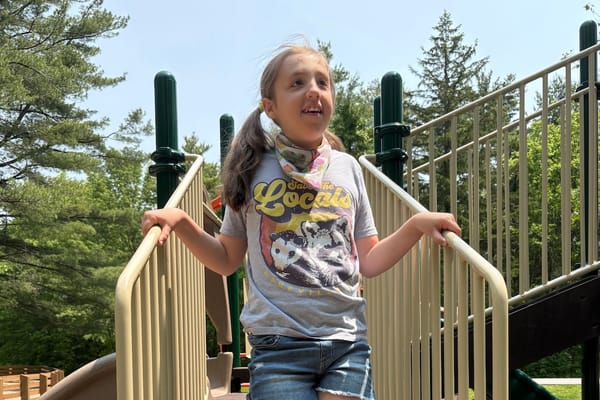
It might feel scary at first to talk to elected officials. Mother Sarah Anderson has tips as a parent, but also as an attorney and policy advocate.
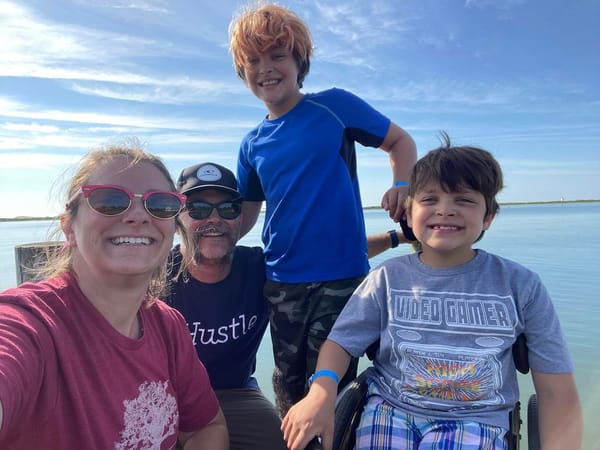
Jackson was a million dollar baby. Our family fights to make sure kids like him get the health care they need.
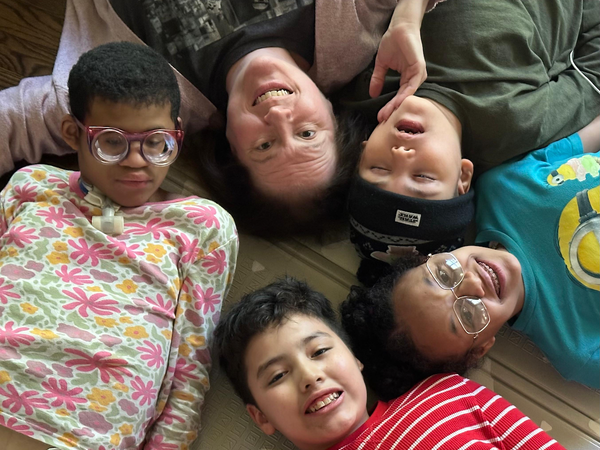
Welcoming medically complex foster children into my home wouldn't be possible without Medicaid.
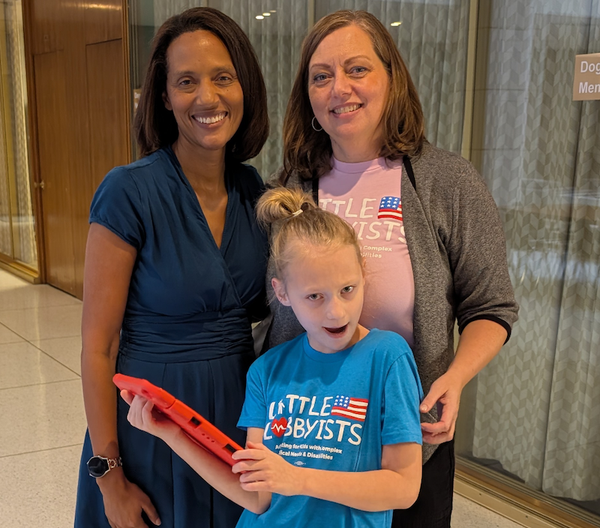
Long-time Little Lobbyists mom Stacy Staggs talks about sharing her story, with tips for those who are new to advocacy.
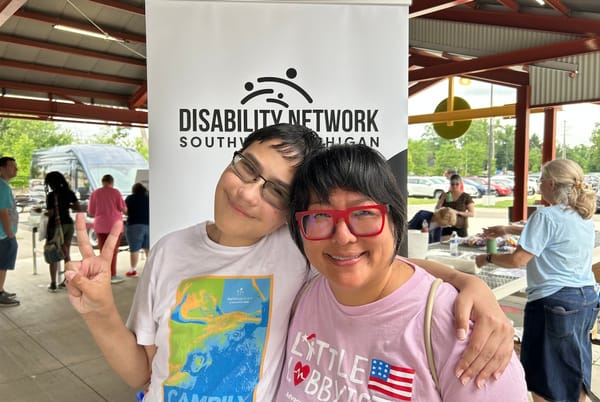
Bo's had his nose in a book since early childhood. He depends on Medicaid to manage his rare disease.
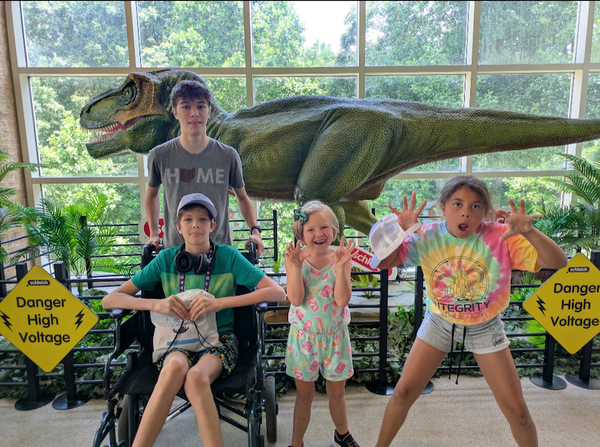
Maya Brown worries that Medicaid won't be there when her children need it in the future.
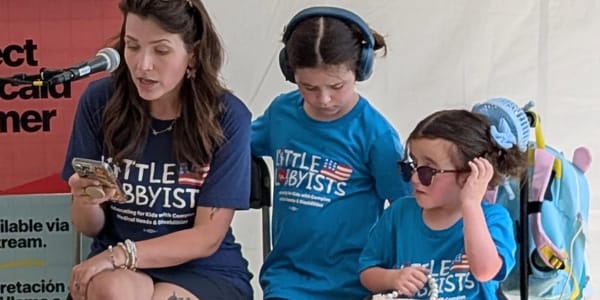
Little Lobbyists mom Alexis Stadler shares what it's like to advocate with lawmakers, talk to media, and represent Little Lobbyists in the community.
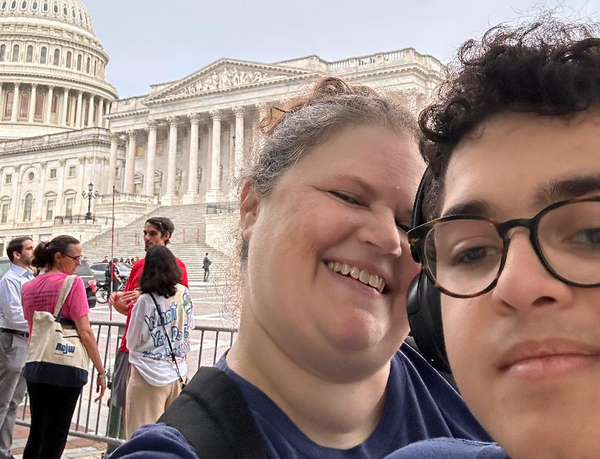
Isaac blew through his lifetime cap before he was even a year old. Medicaid saved his life, and keeps him thriving.
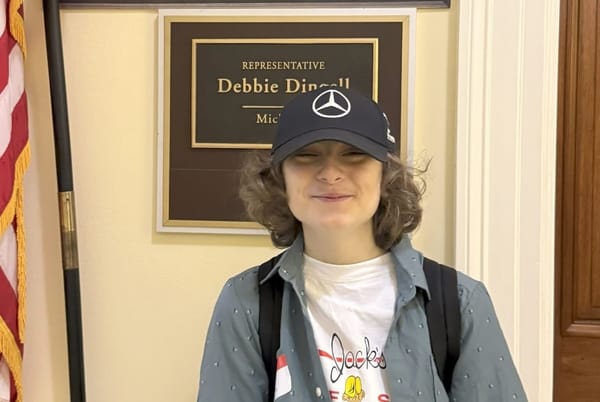
Quinn Mackercher urgently needs a multi-organ transplant, a procedure only offered in the U.S., and can only access it through Medicaid coverage.
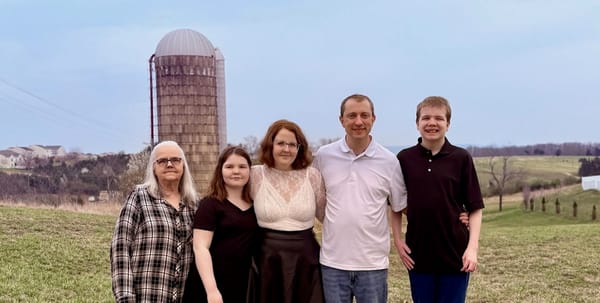
My family relocated from the South for better medical care. Medicaid makes it possible for my medically complex children to thrive.
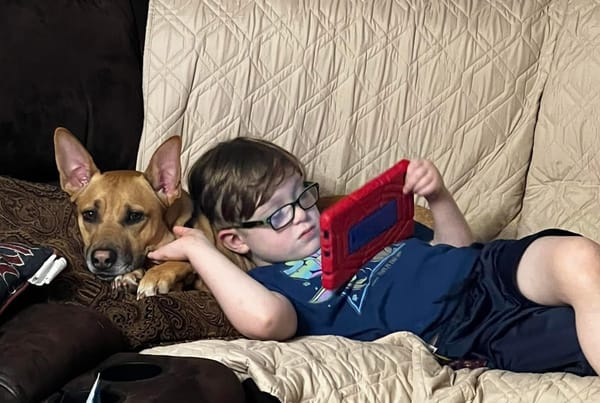
Without Medicaid, I would be bankrupt, homeless, and separated from my child.
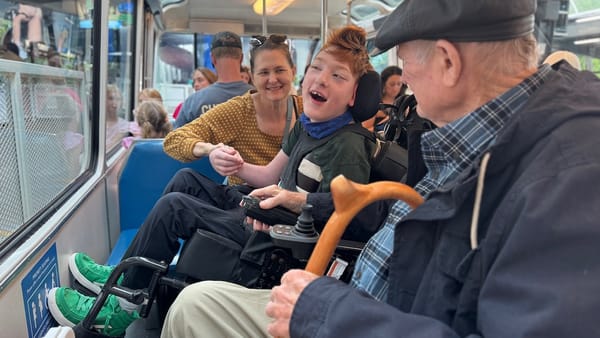
Without Medicaid, panda-loving Danny Robeson would be institutionalized away from his family and community.
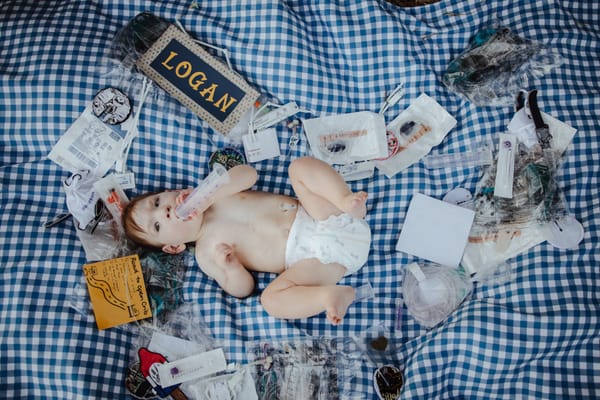
Mel Sabin's son was born with a rare genetic disorder, Cri du Chat syndrome. This happy little man with great taste in music is the best kid a single mom could ask for.
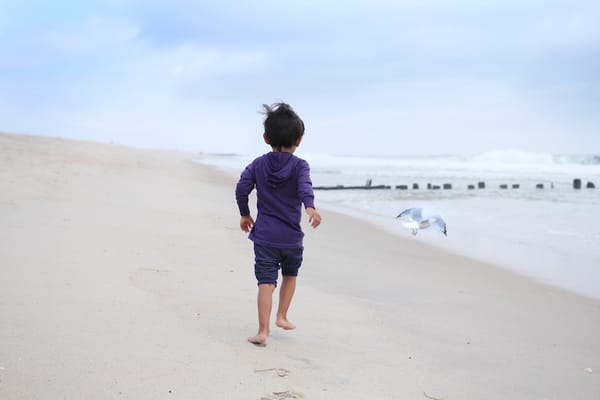
Medicaid provided critical coverage and services for my son Ethan, making it possible for him to survive with Heterotaxy, and allowing me to choose life, every day.
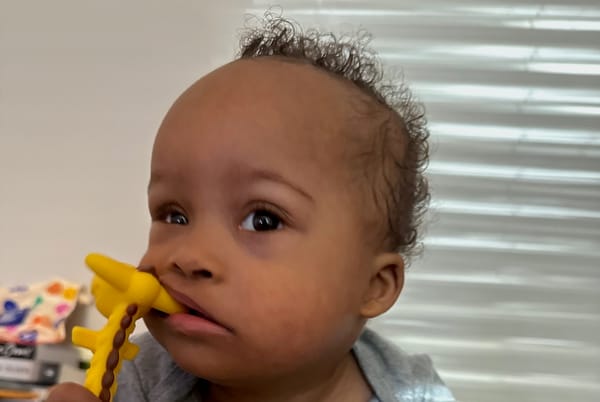
My son Landry counts on Medicaid for the care he needs, and allows us to plan ahead for the rest of his life.
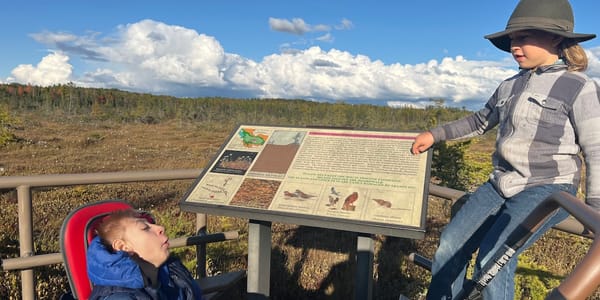
It takes a village—and family caregiving—to raise a child.
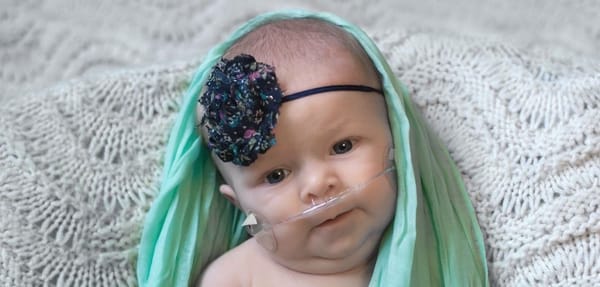
Amelia died of spinal muscular atrophy at three months old. She left an outsized legacy.

At age 11, Vivian is already advocating for herself and fellow medically complex children, thanks to Medicaid coverage that helps her live a full and active life in her community.
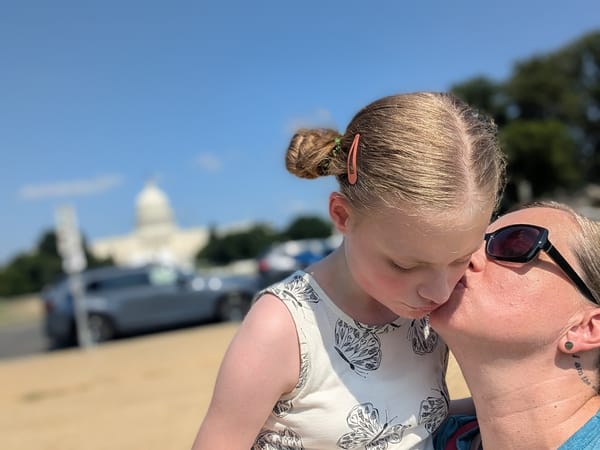
Emma and her sister were born at just 27 weeks. Home and community-based services keeps Emma here with her family, where she belongs.
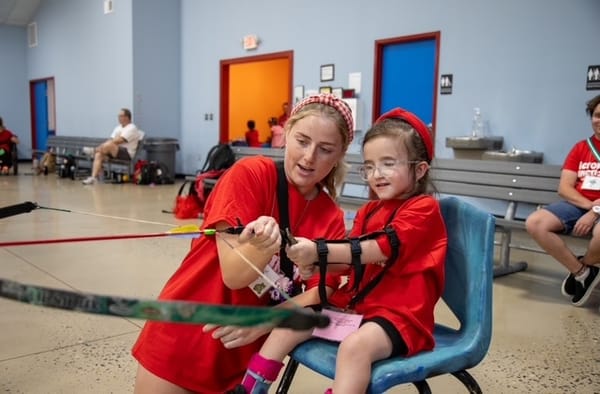
Kinsley was born with two rare diseases, and then she got cancer.
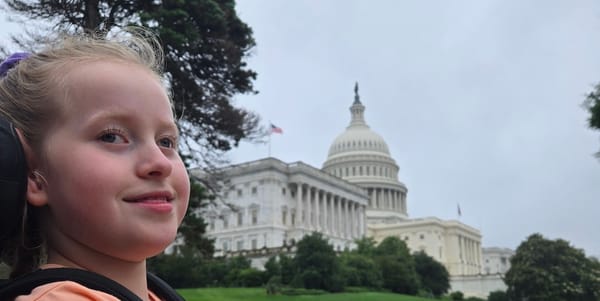
Olivia is a firecracker who loves baking and cracking jokes. Medicaid helps her live at home with her family, where she regularly does both.
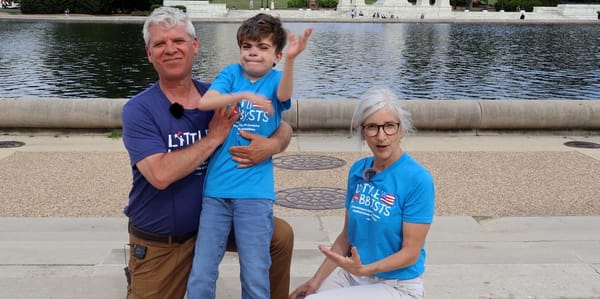
Charlie's Medicaid and access to home and community based services gives him the best quality of life, and future.
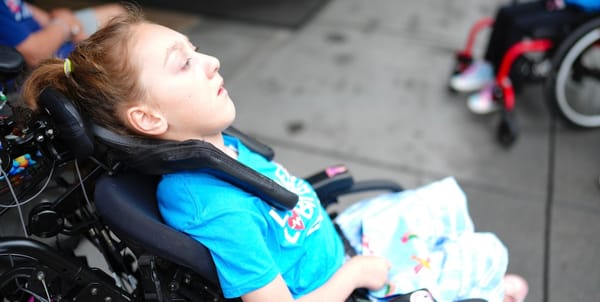
Julie and her family relocated to Missouri from their home state of Arkansas to access better care for their daughter Olive.
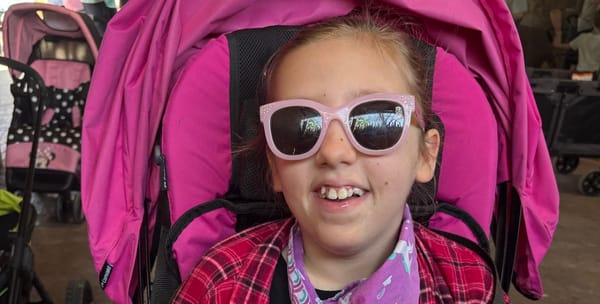
Without Medicaid, Audrey could become a ward of the state, instead of at home with people who love her.
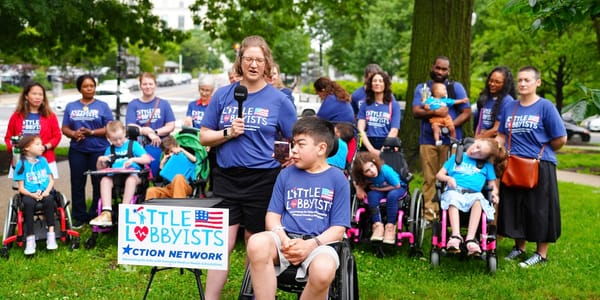
Our close-knit Alaskan community knows it takes a village — and Medicaid — to raise a child.
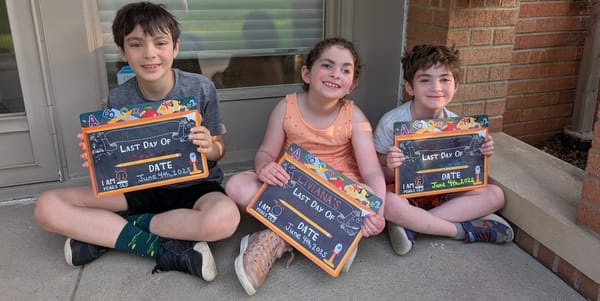
When a tree branch fell on our daughter Liviana's head, she became a totally different person. Medicaid was there for her in her time of need.
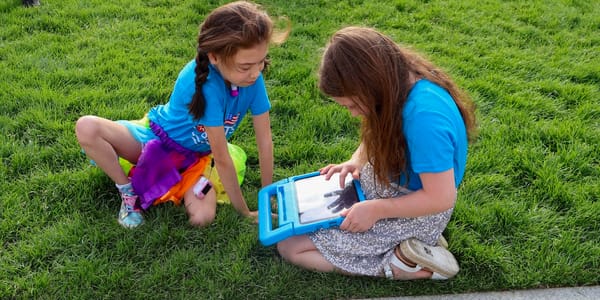
Rural hospitals across the U.S. count on Medicaid and Medicare funding to keep their doors open. Without Medicaid, these facilities could close.
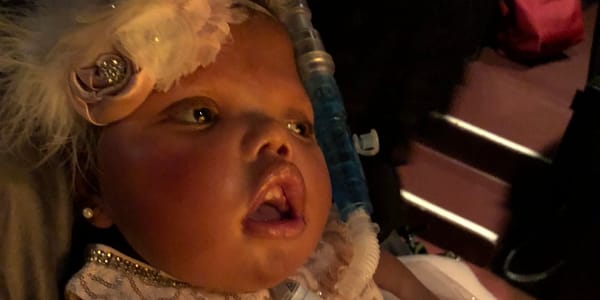
The Children's Center at the University of Southern Mississippi values medically complex children as people and provided my daughter Ansley with the best quality of life.
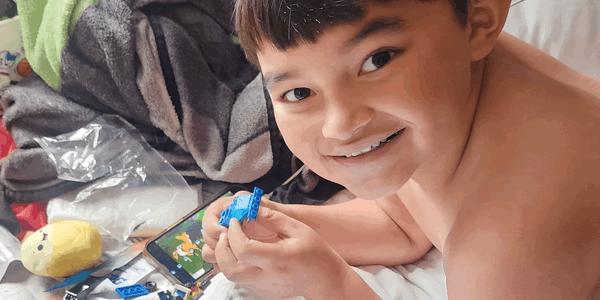
The Medicaid Health Insurance Premium Payment Program backs up our private insurance to keep Ian safe and thriving.
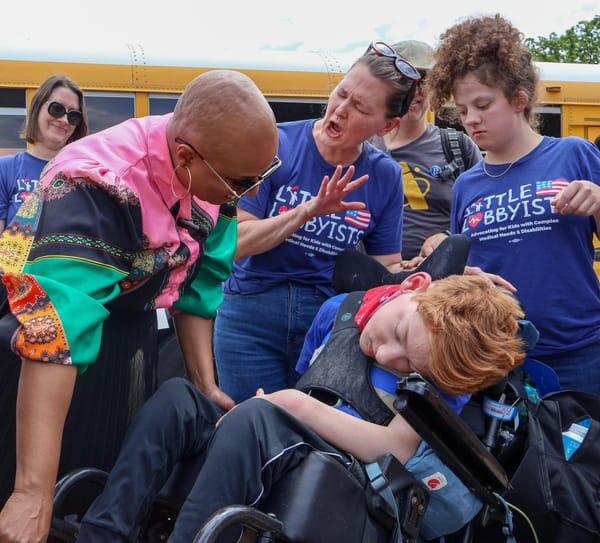
Trump's first hundred days are threatening medical research; critical programs children and families rely upon for survival; and continued access to medical supplies, equipment, and medications.
There was a time while I was caring for Adonise as an infant in the NICU when people tried to apologize for things they did not understand about my son. The unknown and the undescribed. He spent 361 days in the neonatal intensive care unit (NICU), where he received a
Hi! I’m Jenny McLelland and I’m the Director of Policy for Home and Community-Based Services for Little Lobbyists. My family lives in Clovis, a small city in the agricultural Central Valley of California. My husband is a physical education teacher, and I’m a retired police officer. We
On August 26, 2024, the Care Can’t Wait bus tour kicked off its first event in Chicago, Illinois. "Care on Tour" would wend its way through nine cities in seven states. It was part of an ongoing national campaign by the Care Coalition that highlights the importance
A few weeks ago, I sat in a room in the White House, surrounded by disabled advocates, and listened to a man named Mychal Threets speak about library joy. He was a panelist at the event, the White House Disability Pride Convening I’d seen Mychal on TikTok before as
My son Adonise is a second-generation Haitian-American who has a teacher and a technology professional for parents. Adonise is curious, rambunctious, funny, and intelligent. He’s a budding drummer, and he loves the playground and to wave the Haitian flag every morning. We call him Donnie, but I call him
This spring, PBS aired Understanding Autism, a documentary by filmmaker Scott Steindorff, who was diagnosed with autism as an adult. Steindorff wants to reframe the conversation about autism by focusing on the incredible talents and personalities of autistic people. The film is a rewarding and refreshing look at neurodiversity. Little
In July, the Care Can’t Wait Coalition sponsored several events on community integration in Washington, DC, including a panel at the White House, a Congressional briefing, and a Summit at the Martin Luther King, Jr. Memorial Library. Community integration is at the heart of disability rights, and is supported
Did you know that the Civil Rights Act of 1964 does not ensure civil rights for people with disabilities? The Act “outlaws discrimination based on race, color, religion, sex and national origin.” The Civil Rights Act does not outlaw discrimination based on disability. So how then are people with disabilities
Today, June 22, 2024, marks the 25th anniversary of the U.S. Supreme Court’s landmark case, Olmstead vs. L.C., which affirms the right of disabled people to use their state Medicaid benefits to live in their communities, rather than in institutions. The suit was brought by Lois Curtis
The U.S. Supreme Court’s Olmstead Decision, a landmark civil rights case for people with disabilities, marks its 25th anniversary this year! In 1999, the Court upheld the right to community integration in the Americans with Disabilities Act (ADA) of 1990. Our disabled loved ones have the right to
“By removing barriers to health care and social services, this rule advances justice for people with disabilities who have for too long been subject to discrimination. No diagnosis should be missed because of an inaccessible mammogram, no patient should be left with questions about test results due to inaccessible websites,
Kelley Coleman is the mom to two amazing boys, one of whom has multiple disabilities (including an as-yet-undiagnosed genetic syndrome, cerebral palsy, autism, CVI, epilepsy, and more). Her book Everything No One Tells You About Parenting a Disabled Child: Your Guide to the Essential Systems, Services, and Supports stems from
Ady Barkan, health care activist and co-founder of Be A Hero, passed away from complications of ALS on 11/1/23. This tribute is adapted from remarks delivered at CareFest in Los Angeles on 11/2/23. Like so many who loved him, when I think of Ady, I think
(Editor's note: edited and republished on 5/13/2025) This week marks the 50th anniversary of the Rehabilitation Act of 1973, which opened doors to jobs, education, independent living, and much more for people with disabilities. The Act also established standards for accessible communication and information technology. The
This time of year brings back lots of memories of family vacations. Cerebral palsy means that accessibility is a priority on vacation. Our family enjoyed trips to Cape Cod, Maine, and New Jersey when I was growing up. Planning an accessible vacation can be challenging, but it is possible. Finding
This week, the disability community lost a great light. Judy Heumann has been called the mother of the disability rights movement, and her life reflected that. She was kind, warm, encouraging to Little Lobbyists families, and, especially to our children. Her own family, as described in her memoir, Being Heumann:
I can still remember our family’s first encounter with disaster preparedness–or lack thereof–it was the day of 9/11, 2001, and my son Rob was four years old. My husband and I had waved him off to preschool on that beautiful, bright blue morning at our home
Families like ours are nothing if not prepared. As a mom and caregiver to my Little Lobbyists, Emma and Sara Bean, I have plans on top of plans. Emergency Action Plans (EAPs) are a lifesaving requirement for our homes and our schools. Our families have checklists, “go bags” and contingencies.
On June 22, 1999, when the U.S. Supreme Court issued its landmark disability rights decision in the case of Olmstead vs. L.C. & E.W., my family was at the beginning of our own disability rights journey. My son Rob had just turned two, and we were struggling
Our children with complex medical needs and disabilities will grow up to become adults with disabilities, so it’s important that we, as Little Lobbyists families, listen to disabled adults. Those of us who are parents may not have experienced life with a disability until our child did—who better
My son Rob is a 25-year-old artist and activist. He’s survived and thrived in his community because he has had access to enteral (or “tube”) feeding for all of his nutrition, hydration, and medication needs since the age of two. Tube feeding isn’t shameful; it’s just another
“Hey there”, my email to our enteral supplier began in as friendly a tone as I could muster, “We received my son’s tube-feeding supplies and after his home health aide went to hang one of the bags, she realized that the wrong feeding bags were sent. We usually get
I’ve had some reasons for optimism about the pandemic, including the development of vaccines and treatments, but my community is still in danger, and it seems that nondisabled folks care less and less. I can remember the early days of the pandemic, thinking that nondisabled people might finally understand
Adulthood is a challenging time for most young adults and their families. For adults with disabilities and their parents, it’s extra challenging. As an adult with Cerebral Palsy, adulthood has been more challenging than I’d imagined. Luckily, my parents have been supportive. I am lucky to have a
(Editor's note: edited and republished on 5/13/2025) Rob Stone is an active member of Little Lobbyists. Rob’s goals upon leaving high school were to become a health care and disability rights advocate, and an artist with his own art website. Rob has a rare disease,
Little Lobbyists honors the passing of an advocate who changed our children’s lives: Julie Beckett, the mother of Katie Beckett, for whom a crucial Medicaid waiver is named. Julie and Katie Beckett became advocates for people with disabilities because they wanted justice and a good life for Katie and
We find ourselves celebrating our third consecutive World Down Syndrome Day (WDSD) against the backdrop of a global pandemic; though, undeniably, something has recently shifted. While much of the world, and certainly much of the United States, has decided that it is time to turn the page, close the book,
As the mother of a medically complex child, I was stunned by a recent Facebook post by a scientist friend who is cautiously advocating for dropping mask requirements in schools. He’s posted the recently released “Urgency to Normal” toolkit. My friend reminds us that he “was all-in at the
Disability Day of Mourning is an annual commemoration held on March 1st to remember the lives of people with disabilities murdered by their caregivers, particularly those killed by parents and other family members, and to demand justice for their deaths. Our executive director, Elena Hung, spoke at today’s vigil
Self-directed or consumer-directed services are an increasingly popular option among state Home and Community-Based Services (HCBS) waivers. The Self-Directed Advocacy Network of Maryland, Inc., (SDAN) calls self-direction, “Living the life you want.” Jeneva interviewed Alicia Wopat, President of SDAN, to learn more about the group’s advocacy. Tell me about
What happens to disabled young adults after high school? Many families don’t know what to expect when school ends. The Individuals with Disabilities Education Act (IDEA) makes education an entitlement for students with disabilities, ensuring them a place in their communities. However, families quickly learn as high school draws
Share the Journey with Jeneva: Sherry Pickett Gets to the “Heart” of Advocacy Sherry Pickett has a Master’s Degree in Education, specializing in mental health. She’s worked in the mental health field for the last 18 years, providing Case Management Services and Therapy/Parenting Classes. Now her career
(Editor's note: edited and republished on 5/13/2025) In 1981, President Ronald Reagan learned about a 3-year-old girl with complex medical needs and disabilities named Katie, who was forced to live in an institution because federal rules governing Medicaid prevented her from getting the care she needed
September 24th felt like an eternity away. September 24th was my daughter Myka’s 12th birthday. We began counting down to her big day the minute the CDC, last May, approved Covid-19 vaccines for kids 12 and up. Myka, the youngest of my three kids, is the only unvaccinated person
I’ve been thinking about trauma lately. Our children and our families have been through so much over the last year and a half--not only the pandemic itself, but the insurrection at the U.S. Capitol; the natural disasters caused by climate change; the U.S. withdrawal from Afghanistan; the
Joyful, silly, and smart are words my husband and I would use to describe our six-year-old son. He is a child who knows no stranger, genuinely loves everyone he comes across, and is obsessed with cars. The world is his oyster, and he loves being an active participant in life!
I still remember my first event with Little Lobbyists, a family-led group advocating for kids with complex medical needs and disabilities. My son Rob wasn’t with me that day--he was enjoying one of his last precious days of public school, which he loved. I’d gone to Capitol Hill
On Thursday, June 17, 2021, the U.S. Supreme Court upheld the Affordable Care Act (ACA), and I breathed a huge sigh of relief. I've lost count of how many times I have metaphorically held my breath while waiting to find out if the ACA, which ensures my
Given the Biden Administration’s commitment to Home and Community-Based Services (HCBS) and ending Medicaid waitlists, our country will need more and better-trained direct care workers. These home care workers will be vital to the ability of our medically complex and disabled children to survive and thrive in their communities.
On June 17, 2021, the U.S. Supreme Court issued a decision on a group of cases from several states that challenged the constitutionality of the Affordable Care Act (ACA). The Supreme Court ruled 7-2 that the plaintiffs lacked standing to challenge the health care law. This was the third
This morning’s ruling by the Supreme Court upholding the Affordable Care Act is a victory for our children with complex medical needs and disabilities and for all Americans. The Affordable Care Act (ACA) has saved and improved the lives of our children with complex medical needs and disabilities with
The CDC just recently lifted the mask mandate for those of us who have been fully vaccinated. Hurray! The moment we all waited for, right? Except that for some of us, our medically-complex, under-12-year-old children are still at risk every day in this Covid-19 world. We trusted the school districts
Jeneva Stone has the honor of interviewing Angela N. Weddle, a professional visual artist who is autistic with cerebral palsy and congenital right hemisphere brain damage. Weddle is a neurological anomaly and savant, who is not supposed to have any artistic ability but always has. Weddle has mentored and taught
With vaccines on the horizon for teens and younger children this summer and fall, the end of the pandemic may be close enough to grasp. How will you seize the moment as an advocate? These last weeks, I’ve been reflecting on my own plunge into state and federal advocacy,
As parents of children and young adults with disabilities, we should always work to be better allies. Being an ally means empowering our kids and asking ourselves some challenging questions: Are we letting our children speak for themselves? Are we giving them the means and the platform to become their
Maya Brown-Zimmerman is an adult with a rare genetic disorder, parenting four kids with medical needs themselves. When she’s not handling school stuff, driving people to doctor and therapy appointments, taking classes herself (working towards a goal of a Masters in Genetic Counseling), and doing advocacy work within the
I first heard Sister Simone speak at the Women’s March in Washington D.C. on January 21, 2017. Like many people on that unseasonably warm winter day, I’d never been to a protest march before. I was unsure what to expect, and uncertain if I belonged. As I
We must end police violence against Black Americans, and against all people of color, and people with disabilities. The U.S. House of Representatives recently passed the George Floyd Justice in Policing Bill of 2021, which, if enacted, would ban chokeholds and end qualified immunity for police officers. Police violence
Nathan Spoon is an autistic poet with learning disabilities whose poems and essays appear or are forthcoming in American Poetry Review, Columbia Journal, The Cortland Review, Gulf Coast, Harvard Divinity Bulletin, Poetry, and the anthologies How to Love the World: Poems of Gratitude and Hope, and Sonnets from the American:
Each year on March 1, the disability community unites in a Day of Mourning to honor the memory of disabled people who have been killed by a family member or caregiver. Little Lobbyists will be holding a virtual candlelight vigil, and we invite you to join us. The Autistic Self-Advocacy
Amy Silverman is a writer, editor and teacher. Her work has appeared on the radio shows This American Life and Here & Now, and in local and national publications. This year she worked with ProPublica's Local Reporting Network on an investigation into services for people with intellectual and
Meeka Caldwell is an author, wife, mother, and advocate for special needs and for the inclusion of Black and Brown people in the disability community. Noticing a need for more diversity-embracing literature, she set out to write A Friend Like Anian to highlight her Black son with Down Syndrome and
The Affordable Care Act (ACA) appears here to stay--that’s the good news! It has been the subject of multiple lawsuits and dozens of bills that have attempted to overturn it. On December 10, the U.S. Supreme Court heard oral arguments in the latest effort to do away with
Like all of us, Laura Hatcher, our Director of Design & Communications, and Jeneva Stone, our Blog Manager, have had to figure out how to make these December holidays as jolly and bright as possible, given the challenges of the present moment. We had some ideas we wanted to share,
We were in the middle of my son’s homebound Webex class when a sound stimulus triggered a seizure. Vic’s teacher could only watch as I suctioned him, pumped up his supplemental oxygen to four liters, leaned him back, and let him fall asleep. That's how a
My daughter Claire is 14 and loves ice cream, being in water, and has spent much of the pandemic snuggled on the couch with her three younger siblings. Claire spent the first few weeks of her life in the Neonatal Intensive Care Unit receiving the best medical care available. There
I am the mom to two wonderful daughters who love to pretend to be princesses and fairies. They love spending time with friends and are two of the most compassionate people I know. Some of that compassion for others comes out of their empathy and life experiences. While we are
These past few weeks as our country teeters on a precipice, and despite what I was taught in kindergarten, I find myself fantasizing about having a bully on my side, being as cruel as it takes to cut down my fiercest opponent. I should know how good that sounds, because
With less than a week before the election, I’m sure you’ve cast your vote, or have a plan to vote. Health Care Voters are needed now more than ever with the recent appointment of Amy Coney Barrett to the Supreme Court. The Affordable Care Act (ACA) is in
I’m Myka’s mom. I’m just one mom of one child with serious medical complexities, but I know I represent thousands of families just like mine throughout our country. Myka is our third child after a set of twins. Boy twins! I had really hoped that I would
March 2007: My sixty-six-year-old father is rushed to the hospital after surviving a fairly major heart attack while living in another country. I fly to the city where he is, assess the cramped and disjointed medical infrastructure and immediately initiate plans to Medevac him home for care. He tells me
I want to thank the members of this committee for the opportunity to raise my voice against the nomination of Amy Coney Barrett and in support of the Affordable Care Act (ACA) and to share my family’s story. While I appear alone in this room, I bring with me
My name is Erin Gabriel. I live in Beaver County in Western Pennsylvania with my husband and three children, Collin, Bridget, and Abby. My youngest daughter Abby is a beautiful, fun, mischievous ten-year-old who loves playing with her big sister and brother, going to the theater, exploring the outdoors, and,
I love the sound of my daughter's voice. Like any mama who adores her kiddos, the sweet, small sound of their voices are music to my ears. My twin girls, Emma and Sara, will celebrate their 7th birthday later this month. They are happy, rambunctious, curious and remarkably
As far back as I can remember, I have always found ways to express myself that others can understand. It is why I escaped the discrimination others still endure. I have significant motoric, and speech, disabilities due to cerebral palsy. On the wall of my office hangs a piece of
Jeneva is thrilled to interview Alice Wong (she/her), a disabled activist, media maker, and consultant. Alice is the Founder and Director of the Disability Visibility Project® (DVP), an online community dedicated to creating, sharing and amplifying disability media and culture created in 2014. She is also the editor of
As the mother of a young man with complex medical needs and disabilities, health care means peace of mind: knowing that Rob’s medical and adaptive needs will be met. That Rob can take advantage of technology and medical advances, such as his augmentative and alternative communication (AAC) device. Rob’
“Back to school” has been my favorite time of year since I was a kid looking forward to new friends, activities, things to learn, and (my favorite) school supplies. As a mom, I still look forward to the promise and potential a new school year brings (and I still love